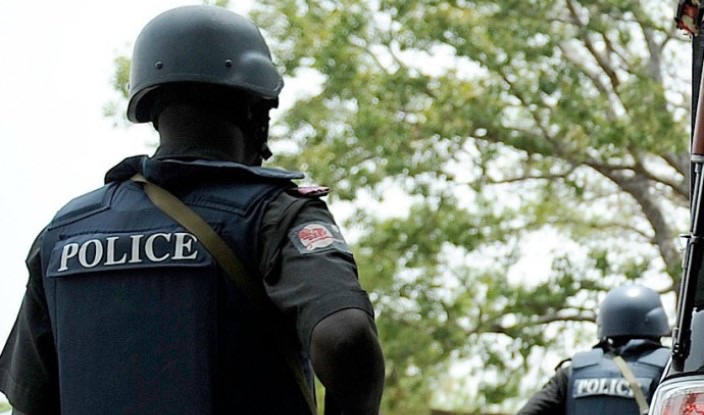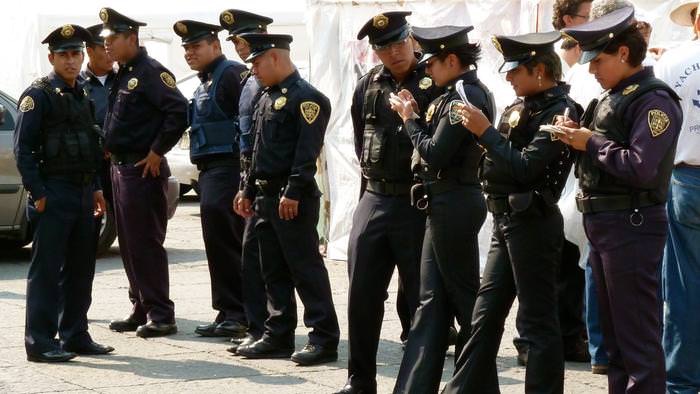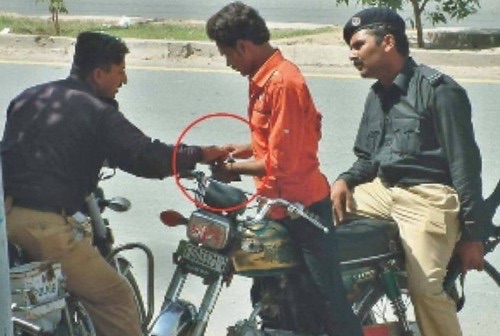Police corruption is a widespread problem that weakens justice systems and damages the relationship between citizens and law enforcement worldwide.
To address this issue, various international organizations have developed tools, such as the Police Corruption Perceptions Index, which measures public opinion on corruption within police forces across different nations.
Below, we delve into the ten most corrupt police forces globally, based on survey responses to the question: “How significant is police corruption in your country?” These rankings are derived from the levels of corruption perceived by local populations.
10. Nigeria – Score: 7.94

The Nigerian police force struggles with significant corruption issues, with officers frequently engaging in bribery and abuse of power.
Key corrupt practices include:
- Bribery: Officers often demand bribes during traffic stops or routine investigations.
- Political Influence: The police are frequently accused of being used by the ruling government to suppress political opposition.
- Lack of Accountability: Corrupt officers are rarely punished, allowing a culture of corruption to flourish.
Despite calls for reform, little progress has been made to address the deep-rooted corruption within Nigeria’s police force.
9. Mexico – Score: 7.97

Mexico’s police force is notorious for its involvement in corruption, much of which is linked to the ongoing drug war. Cartels frequently bribe or threaten officers to ignore their activities.
Key issues include:
- Collusion with Drug Cartels: Many officers are believed to work with drug cartels through bribery or coercion.
- Bribery: Officers routinely accept bribes to avoid charges or expedite processes.
- Impunity: Corrupt officers are rarely held accountable, fostering a culture of lawlessness.
Efforts to reform Mexico’s police force have struggled due to the deeply entrenched corruption within the system.
8. Ukraine – Score: 7.98
Ukraine’s police force has struggled with corruption for decades, a legacy rooted in its Soviet past. Although reforms have been attempted, corruption still deeply affects the system.
Some of the main corrupt practices include:
• Bribery: Officers commonly solicit bribes for services such as processing complaints, filing reports, or speeding up legal procedures.
• Political Manipulation: The police are frequently used as a tool by those in power to suppress political opposition or protect influential figures.
• Inadequate Pay: Low salaries often push officers to engage in corrupt behavior or accept bribes to supplement their income.
Despite ongoing international efforts to reform Ukraine’s police, corruption continues to be a major challenge.
7. Guatemala – Score: 8.00
Guatemala’s police force faces extensive corruption, exacerbated by organized crime and weak institutional oversight.
Key challenges include:
• Collusion with Drug Cartels: Drug cartels operate freely due to police corruption, with officers often bribed or coerced into turning a blind eye to illegal activities.
• Bribery and Extortion: Citizens frequently encounter demands for bribes during routine interactions, with officers abusing their authority to intimidate and exploit the public.
• Impunity: Corrupt officers are rarely held accountable, fostering a culture of impunity and eroding public trust in law enforcement.
Efforts to reform Guatemala’s police force must tackle these deep-rooted issues, but progress has been slow.
6. Uganda – Score: 8.05
Uganda’s police force is widely recognized for rampant corruption, with officers often involved in bribery, excessive force, and political interference. Many citizens view the police as an instrument of state control, particularly when it comes to silencing political opposition.
Key issues within the force include:
1. Suppression of Political Dissent: Law enforcement is frequently used to target government critics, with officers harassing, detaining, and intimidating those who express opposing views.
2. Rampant Bribery: Bribes are commonly solicited during routine encounters, such as traffic stops, or in exchange for dropping fabricated charges.
3. Human Rights Violations: The police are notorious for excessive force, especially during public protests and while apprehending suspects, leading to numerous cases of brutality.
Despite growing calls for thorough police reform, little progress has been made, allowing corruption to persist and further eroding public confidence in the force.
5. Venezuela – Score: 8.05
Venezuela’s deepening political and economic crisis has severely impacted its police force, making it one of the most corrupt institutions in the country. The dire social conditions have exacerbated systemic corruption within law enforcement.
Key concerns include:
1. Political Manipulation: The Venezuelan government has been widely accused of using the police to suppress political opposition. Officers are frequently deployed to arrest dissenters and violently disperse protests, undermining citizens’ rights to free expression.
2. Bribery and Extortion: Corruption is rampant, with officers demanding bribes for basic services like processing official documents or providing protection. Extortion of citizens has become commonplace, further eroding trust.
3. Criminal Collaboration: Many police officers are involved in organized crime, either through direct participation or by protecting criminal syndicates. This complicity with illegal activities undermines any efforts to restore law and order.
As Venezuela’s crisis worsens, the possibility of meaningful police reform grows more distant. The widespread corruption within the force is deeply entrenched, and public trust in law enforcement has plummeted. Citizens are increasingly hesitant to report crimes or seek police help, contributing to a growing breakdown of social order. This highlights the urgent need for institutional reform—an immense challenge given the country’s political and economic turmoil.
4. Paraguay – Score: 8.08
Paraguay’s police force is widely regarded as one of the most corrupt in Latin America, plagued by systemic issues that have been difficult to resolve. A combination of factors, including low pay, poor training, and a deeply entrenched culture of bribery, fuels corruption within the ranks.
Key corrupt practices include:
1. Widespread Bribery: It is common for police officers to accept bribes in exchange for ignoring criminal activities or even facilitating illegal operations like smuggling and drug trafficking. This form of corruption has become so routine that it is often seen as an unofficial part of the job.
2. Collusion with Organized Crime: Law enforcement officials are frequently accused of working in tandem with criminal syndicates, allowing illegal enterprises to operate with little interference. These corrupt partnerships enable officers to profit while criminal activity goes unchecked.
3. Negligence for Profit: Corruption has led to a widespread lack of accountability within the force. Many officers intentionally neglect their duties, refusing to investigate crimes unless they receive bribes from involved parties, further eroding the justice system.
Efforts to reform and professionalize the police force have largely failed to produce meaningful change. The level of corruption is so deep-rooted that it is perceived as an inherent characteristic of the institution rather than an isolated issue.
This pervasive corruption not only weakens the rule of law but also damages public trust in law enforcement, creating a cycle where citizens are unwilling to report crimes or cooperate with the police. The situation highlights the urgent need for comprehensive reforms, including better training, fairer compensation, and stricter accountability measures to tackle the problem at its core.
3. Honduras – Score: 8.32
Honduras has long struggled with deep-seated police corruption, a major obstacle in its fight against organized crime and drug cartels. This widespread corruption has severely compromised the integrity of the police force, blurring the lines between law enforcement and criminal organizations, and rendering crime-fighting efforts largely ineffective.
The key issues affecting the Honduran police include:
1. Criminal Infiltration: Police officers are frequently found collaborating with drug cartels and criminal syndicates. In some cases, officers have acted as paid enforcers for these groups, completely undermining their role in protecting public safety and further embedding criminal networks within the state.
2. Culture of Impunity: Corrupt officers often evade prosecution or disciplinary action due to a deeply ingrained system of impunity. This lack of accountability enables widespread misconduct and perpetuates corruption within the ranks, as officers feel protected from any consequences for their actions.
3. Bribery and Extortion: Extortion by law enforcement is rampant, with officers regularly demanding bribes from businesses and citizens. This practice has created a pervasive climate of fear, where the public views the police with as much distrust as they do criminal elements, further eroding faith in the country’s institutions.
Despite attempts by the Honduran government to implement reforms, these efforts have made little headway. The public continues to perceive the police force as deeply corrupt, signaling that more sweeping and systemic changes are needed.
The entrenched corruption within Honduras’ police not only hampers effective law enforcement but also fuels broader societal issues, including economic stagnation, the erosion of democratic institutions, and a cycle of violence and instability. Reforming the police is thus critical, not just for improving law enforcement, but for fostering governance, security, and quality of life across the nation.
The situation highlights the complex challenges faced by countries dealing with endemic corruption, particularly within institutions meant to uphold the law. Addressing these issues will require multifaceted solutions, including stronger vetting processes, increased accountability, better officer training and pay, and efforts to overhaul the institutional culture from within.
2. Kenya – Score: 8.88

Kenya’s police force ranks as the second most corrupt globally, a distinction that deeply concerns its citizens. Rather than fulfilling its role as a protector of public safety, the police have become notorious for perpetuating violence, abuse, and extortion.
Common forms of misconduct within the force include:
1. Systematic Exploitation: Bribery, abuse of power, and extrajudicial killings are rampant among officers. These corrupt practices have severely eroded public trust, creating widespread fear and mistrust toward law enforcement.
2. Predatory Traffic Enforcement: Traffic stops have become a major source of extortion, where police fabricate violations or threaten to enforce real ones unless drivers pay bribes. This turns traffic enforcement into a profitable scheme rather than a public safety measure.
3. Unchecked Brutality: Excessive force and extrajudicial killings by the police are common, with many officers acting without fear of punishment. This impunity has fostered a culture of unchecked brutality within the force.
4. Compromised Investigations: Corruption undermines justice, with investigations often delayed or dismissed unless bribes are paid. This misconduct weakens the criminal justice system, preventing fair and thorough investigations.
Despite numerous reform efforts, corruption within Kenya’s police remains deeply entrenched. The persistence of these problems is largely due to weak accountability mechanisms and the lack of meaningful consequences for corrupt officers.
The situation highlights the complex challenges faced by nations battling systemic police corruption. Reform in Kenya requires more than surface-level changes, including:
• Strengthening accountability with independent oversight bodies
• Improving police training and raising pay to reduce incentives for corruption
• Promoting a culture of integrity through education and positive reinforcement
• Involving the public in police oversight to rebuild trust between law enforcement and communities
Addressing corruption in Kenya’s police force is crucial not just for restoring effective law enforcement but also for fostering economic growth, social stability, and the integrity of democratic institutions.
1. Pakistan – Score: 9.81

Pakistan’s police force is widely regarded as one of the most corrupt in the world, with an overwhelming consensus among citizens regarding the extent of police misconduct. Transparency International Pakistan consistently ranks the police as the country’s most corrupt institution, with Punjab Police being particularly notorious for engaging in bribery, extortion, and abuse of power.
Key issues fueling this systemic corruption include:
1. Systemic Bribery: Police officers frequently demand bribes for performing basic duties, such as filing First Information Reports (FIRs), which are crucial for initiating criminal investigations. This practice effectively turns access to justice into a commodity, disproportionately affecting the poor who cannot afford to pay for services that should be free.
2. Widespread Extortion: Law enforcement officials routinely extort local businesses and civilians, often threatening false charges or arbitrary arrests if payments are not made. This pervasive extortion has created a climate of fear and deepened mistrust between the police and the communities they serve.
3. Rampant Abuse of Authority: Reports of police brutality, illegal detentions, and deaths in custody are alarmingly common. These abuses reflect a culture of impunity within the force, where officers act without fear of reprisal or accountability.
4. Political Manipulation: Corruption is further entrenched by political interference, with local politicians exploiting the police to target political opponents or protect their own interests. This manipulation undermines the impartiality of law enforcement and further erodes public confidence in the justice system.
The persistence of these problems has resulted in a profound lack of trust in Pakistan’s police. Decades of mismanagement, weak oversight, and entrenched corruption have made reform efforts largely ineffective. To address these issues, more comprehensive and long-term strategies are required, such as:
• Establishing independent oversight bodies and stronger accountability mechanisms to curb corruption
• Enhancing police training, improving compensation, and creating better working conditions to reduce the incentive for officers to engage in corrupt practices
• Depoliticizing the police force to ensure its independence from political meddling
• Promoting community policing initiatives to rebuild trust between law enforcement and the public
• Strengthening the judicial system to ensure that corrupt officers face real consequences
The situation in Pakistan underscores the complex challenges of addressing entrenched corruption within law enforcement. Tackling this issue is critical not only for restoring public trust in the police but also for strengthening the rule of law, fostering economic development, and improving governance across the country.